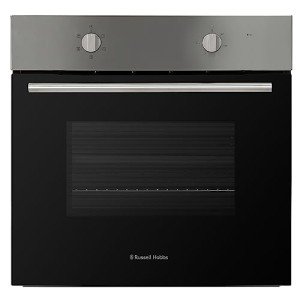5 Laws Everybody In Bulit In Oven Should Know
The Comprehensive Guide to Built-in Ovens: Features, Benefits, and FAQs
Built-in ovens have actually become a staple in modern cooking areas, offering benefit, design, and effectiveness. Unlike standard freestanding ovens, built-in designs are created to integrate seamlessly into cabinets, thus raising both the function and aesthetics of kitchen areas. russell hobbs built in double oven dives deep into the world of built-in ovens, discussing their functions, advantages, installation factors to consider, and answers to often asked questions.
What is a Built-in Oven?
A built-in oven is a device that is designed to be set up directly into a wall or kitchen cabinetry. This setup option provides property owners the capability to create a customized cooking area, making the most of offered kitchen square video footage while providing a streamlined, professional appearance.
Key Features of Built-in Ovens
Built-in ovens are loaded with functions that deal with a range of cooking styles and preferences. Secret features consist of:
Feature
Description
Range of Cooking Modes
Options such as convection baking, broiling, and self-cleaning modes to boost cooking versatility.
Size and Configuration
Readily available in numerous sizes and heights to fit particular kitchen layouts, varying from compact to larger units.
Design Options
Aesthetic options including stainless steel, black stainless, and custom-made panels to match any kitchen design.
Smart Technology
Numerous built-in ovens come geared up with Wi-Fi abilities, making it possible for remote monitoring and control by means of mobile phone apps.
Multi-Functionality
Some designs combine oven and microwave or consist of steam functions to produce diverse cooking alternatives.
Advantages of Built-in Ovens
The benefits of incorporating a built-in oven into a kitchen style extend beyond simple aesthetics. Here are some noteworthy advantages:
1. Space Efficiency
Built-in ovens maximize countertop area by removing the need for a freestanding system. Their combination into kitchen cabinetry permits a cleaner kitchen design.
2. Enhanced Visual Appeal
With streamlined styles and adjustable surfaces, built-in ovens improve the overall appearance of the kitchen, contributing to a more cohesive design.
3. Improved Cooking Performance
Numerous built-in designs provide innovative cooking technologies, such as convection cooking, which distributes hot air for even cooking, reducing cooking times and improving outcomes.
4. Convenience and Accessibility
Built-in ovens are frequently positioned at eye level, making it simpler to look at cooking progress, lowering the need to flex down, and boosting safety.
5. Increased Home Value
A properly designed kitchen with built-in appliances can substantially increase a home's value, making it more attractive to prospective buyers.
Setup Considerations
When picking and installing a built-in oven, there are several elements to think about:
- Kitchen Layout: It's necessary to prepare how the oven will fit into the existing space, including cabinet heights and clearance requirements.
- Electrical and Ventilation Needs: Built-in ovens typically require specific electrical setups; guarantee that the kitchen complies with local electrical regulations.
- Expert Installation: Due to the complexity of setup, working with a professional can make sure that the oven is set up securely and properly.
Types of Built-in Ovens
Built-in ovens come in different types, each matched for various cooking designs. Below are some of the most typical:
- Single Oven: A conventional choice for everyday cooking requirements, offering versatility for baking, roasting, and broiling.
- Double Oven: Offers two different cooking compartments, permitting simultaneous preparation of numerous meals— a favorite for large families and those who captivate frequently.
- Wall Oven: These ovens are fully integrated into the wall and be available in different designs, consisting of steam ovens and mix microwave.
Popular Brands of Built-in Ovens
A number of trustworthy brand names provide top quality built-in ovens, known for their reliability and variety of features:
- Bosch: Known for smooth style and advanced cooking technology.
- KitchenAid: Offers imaginative functions and multi-functional designs.
- Samsung: Integrates wise technology with a modern-day aesthetic.
- GE Appliances: Provides a series of choices for various budget plans.
Often Asked Questions (FAQs)
1. How do address here choose the right built-in oven for my kitchen?
When selecting a built-in oven, think about the size of your kitchen, your cooking design and frequency, the offered spending plan, and any essential electric outlets or ventilation alternatives.
2. Are built-in ovens energy efficient?
Numerous built-in ovens include energy-efficient technologies, such as much better insulation and exact temperature level controls, which can lead to less energy consumption compared to traditional ovens.
3. Can I set up a built-in oven myself?
While some property owners might attempt DIY installation, working with a professional is extremely recommended to make sure safe and proper setup, specifically worrying electrical connections.
4. What upkeep do built-in ovens require?
Regular upkeep includes cleaning the oven exterior and interior, checking the seals for stability, and guaranteeing that any smart functions or controls are updated as required.
5. Do built-in ovens featured warranties?
Yes, a lot of credible brands use service warranties on their built-in ovens, normally covering parts and labor for a given duration. Make certain to inspect the details before acquiring.
Built-in ovens use a blend of design, efficiency, and functionality, making them a popular option for both contemporary and traditional cooking areas alike. With thoughtful consideration of functions, setup, and upkeep, house owners can enhance their cooking experience while including significant worth to their homes. Whether choosing a single or double oven, the financial investment in a built-in model guarantees to change the culinary landscape of any home.
